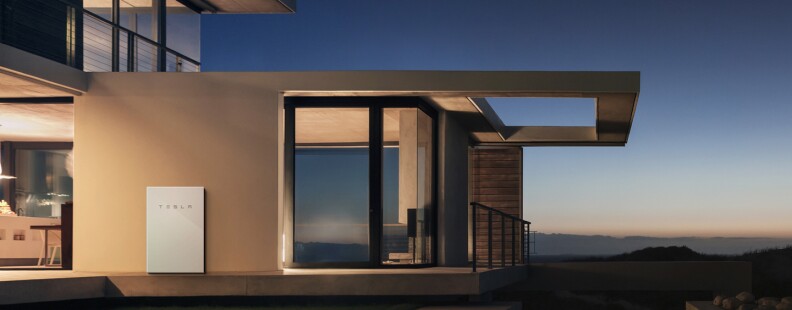With all the fires raging here in Southern California, hundreds of thousands of people have experienced power outages. The usual go-to for backup power is a gas-powered generator.
But there's another option: home energy storage. That's the system that lets homeowners store electricity in a battery for later use. (Clarification: Take Two's on-air conversation said these systems require homeowners to have solar panels; the systems work with our without solar.)
Motor critic Sue Carpenter joined Take Two host A Martinez to talk about how the systems work and why Tesla, Mercedes-Benz, BMW and other car companies are getting into it.

How home energy storage can help during a blackout
Home energy storage systems work by storing electricity in a battery that's also at the home -- usually in the garage. They often work in conjunction with solar panels. Because solar generates electricity during the day when most people aren't home to use that electricity, the battery means people can store the power to use it when they need it -- which is usually at night. But they can also use it during emergencies like the fires California is currently experiencing, which have caused hundreds of thousands of people to lose power. It depends on the size of the battery, but a lot of these systems can store a week's worth of electricity to keep the lights on and the cell phones charged and the refrigerator running.

How it works when the power goes out
Using the Tesla Powerwall as an example, it will detect the outage, disconnect from the grid, and automatically restore power within a split second, so homeowners won't even know the power's gone out. During an outage, the rooftop solar system will continue powering the house and recharging the battery. With a home that only has solar, without energy storage, the solar shuts down so the home is without power like everyone else.

Which car companies offer home energy storage
Tesla began offering its Powerwall system in 2015. This summer, Mercedes-Benz Energy started offering residential systems that offer solar roof installations and energy storage in a Mercedes battery. And BMW is currently experimenting with a small number of residential energy storage systems in the US. In California, BMW plans to install several battery storage systems at customer homes in 2018.
In addition to those companies, General Motors, Tesla, Nissan and Hyundai are all working on large-scale energy storage systems for utilities using the same batteries that power their cars.



